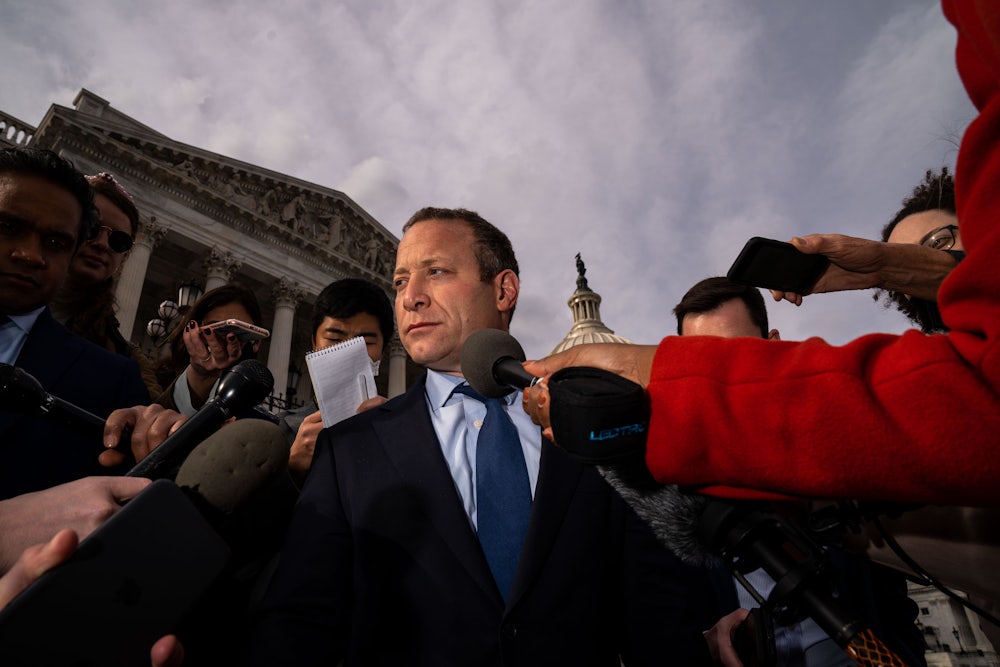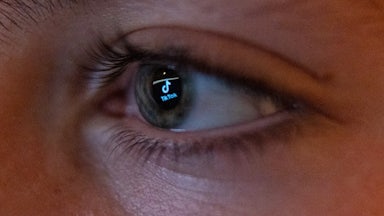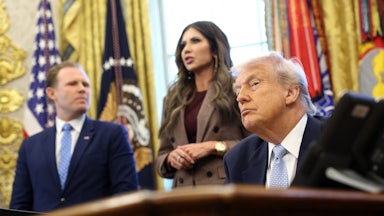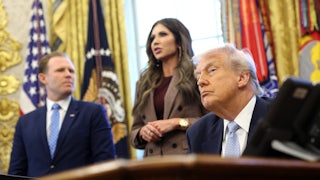The Democratic Party’s brand is toxic. Voters started to sour on Joe Biden last summer, and things have only gotten worse since: Inflation is out of control; the stock market is tanking; the economy may be on the verge of a recession. The only question about the upcoming midterm elections, now only four months away, is just how bad the Democrats’ shellacking will get.
With the party at a crossroads, which direction should Democrats veer? In The New York Times Magazine’s “The Vanishing Moderate Democrat,” reporter Jason Zengerle looks at the party’s wheezing moderate wing as one possible balm to the party’s ailments. Zengerle and some of the Democrats’ best-known centrists, such as New Jersey’s Josh Gottheimer and Florida’s Stephanie Murphy—recently famous for helping to sabotage Biden’s legislative agenda—lay out a basic theory of the case. Voters, they claim, think Democrats are too focused on social issues and are beholden to corporations and the rich. (Oh, really?) Additionally, they believe the party’s progressive wing is too powerful, but its ideas aren’t popular.
“There’s a perception that the party is not on the side of working people; that it’s not on the side of the middle class,” Max Rose, a Staten Island Democrat who lost a reelection bid in 2020, told Zengerle. Gottheimer, meanwhile, keeps stressing the need to focus on bread-and-butter issues, namely taxes. “I’m the only Democrat in the country who puts ‘lower taxes’ on his signs,” Gottenhimer told Zengerle. “‘Jersey values’ are about cops, firefighters, vets—I’ll get your back.” Zengerle likened it to “the disembodied voice of Bill Clinton,” saying, “Although the old Clinton ad wasn’t his party’s current message, it was certainly [Rose’s].”
But Gottheimer is a useful illustration of the actual problem: Democratic moderates aren’t actually offering a solution to the problems the party is facing.
Gottheimer’s signature issue isn’t lowering taxes per se but rather eliminating the cap on state and local tax deductions—a big issue for rich people in his home state. The wealthy would exclusively realize the vast majority of the benefits from such a repeal: As Ryan Cooper at The American Prospect pointed out, “the top 1 percent of households would reap 56 percent of the benefit, while the bottom four-fifths of Americans would get just 4 percent.”
Gottheimer’s other big gripe about his party is that it took too long to pass a bipartisan infrastructure bill, a somewhat odd complaint given that Gottheimer helped doom the legislative agenda Democrats had planned to run on by severing the infrastructure bill from the Build Back Better Act. In doing so, Gottheimer helped to create the dreadful sense of inertia that has played a crucial role in the Democratic Party’s dismal electoral prospects. Making matters worse, the passing of the infrastructure bill doesn’t seem to have made any electoral impact whatsoever.
It’s tempting to engage in counterfactuals—that passing infrastructure even earlier would have somehow fixed all that ailed Democrats. But the opposite argument is just as plausible: that the infrastructure bill didn’t go nearly far enough; that failing to pass Build Back Better was a crucial mistake; and that the piecemeal, milquetoast approach favored by Gottheimer et al. doesn’t actually have much public appeal. In any event, Gottheimer got his way on all these matters, so one would think it’s incumbent on him to explain why this approach hasn’t worked.
One problem may very well be that this approach favors the party’s donor base rather than the working- and middle-class voters it has struggled to connect with in recent years. Indeed, many Democrats in the moderate camp combine a corporatist approach to social issues with pro-corporate economic policies.
It’s possible, as some have argued, that the solution is to take on the party’s left flank on social issues. This is something of a red herring, however: From “Defund the Police” to “critical race theory,” Republicans are ginning up pseudo-scandals that have little to do with the Democratic Party’s actual positions or anything that the party’s leaders have called for; other areas, like trans athletics, are tempests in a teapot—issues that only affect a vanishingly small number of people. This is not to diminish the impact of these issues on the lives of ordinary people, but it’s not clear that overreacting to inflated GOP talking points by shifting to the right will help Democrats more than fighting back against those same talking points—not that Democrats are really doing that, either.
But the other problem is that many of the ideas that people like Gottheimer promote simply aren’t that popular. Gottheimer is no populist firebrand; his commitment to the repeal of the SALT cap gives away the game. While Democrats desperately need to find a way to reach out to noncollege voters, none of these representatives have found the magic touch to do so. Their donor base isn’t interested in raising the fortunes of the middle and working class, and it shows: These moderates are silent on (or have actively worked against) issues like allowing Medicare to negotiate directly with pharmaceutical companies on drug prices or the extension of the child tax credit—an actual tax cut that is extremely popular.
The cupboard is bare in terms of a moderate theory of governance as well. “The thing about moderates today is I don’t think they have a worldview,” political scientist Ruy Teixeira told Zengerle. “They’re just reacting to what [Alexandria Ocasio-Cortez] and the Democratic left are doing. But what’s their alternative? I don’t think they have an alternative. ‘Don’t do dumb stuff’ is not a worldview.”
Biden won in 2020 in part because he is (and was viewed as) a moderate who outcompeted the party’s left flank in the Democratic primary and articulated the insanity of Donald Trump in the general election. It was shrewd campaigning. But it’s not a governing strategy, and you can’t rerun this campaign when you and your party are in power. Biden filled the vacuum with a moderate social spending agenda that fell far short of what a Bernie Sanders type would have called for; he managed to bring the party’s leftward flank on board because he sowed trust with them. And the moderates blew it all up on the launchpad! So if these moderates don’t want to go extinct, they need to figure out something to believe in besides tax cuts for corporations and their donors.










